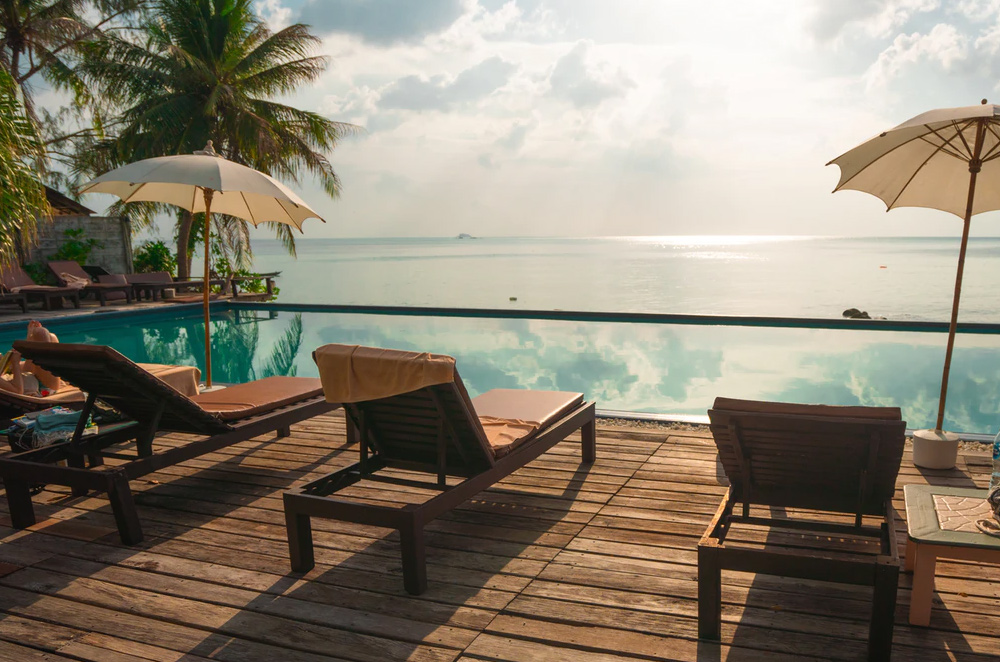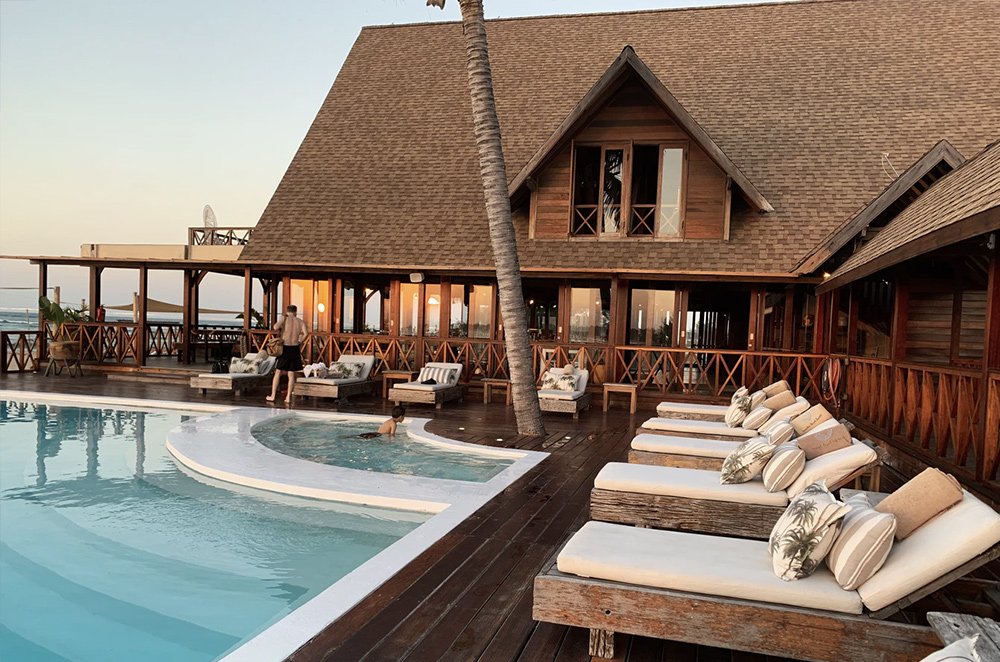As businesses have been forced to pivot in unexpected ways this year, the marketing landscape also continues to evolve—presenting new opportunities heading into 2021. Andreanna Mazereeuw, director of digital marketing for Wallop, joins us today to provide some key takeaways and tips for digital strategies in the coming year.
What are the top 3 things brands should do now to their websites to set up for successful SEO?
Optimizing your website for organic search is a continuous process. Therefore, it’s really important to have access to reliable data to inform your optimization efforts as you go along. So before you even start your optimization efforts, make sure that you are tracking results properly.
You should consider:
- Auditing your Google Analytics and GTM setup for common errors such as duplicate tracking scripts and improperly configured event triggers. These types of errors can wreak havoc on your data, cause metrics to be superficially inflated or the misattribution of traffic.
- Setting up Google Search console. This tool helps you understand how Google is indexing your site. And if that’s not enough, it’s free and crazy easy to set up!
- Getting started with an SEO platform. I love SEMrush and have been using it for years, but I can also recommend SEO Powersuite, Moz, and Ryte. I’m particularly fond of SEMrush’s keyword tracking tool that provides helpful insights into ranking performance (and that of competitors!) and is a valuable tool in setting priorities moving forward. Their Site Audit tool is also very useful for those newer to SEO.
While this may not seem the most glamorous answer, it’s something that we at Wallop are sticklers for. That’s why we start all of our engagements with a tracking audit. Unfortunately, it’s all too common for brands to come to us with a very different idea about how their site is performing than the reality. This can be problematic not just for organic search, but across all of your channels. And all this stress from something that can be as small as an extra line of code.
Once you get all that lovely (and reliable!) data flowing in, you can get down to business with these three vital SEO tasks that I believe are currently being underleveraged by hospitality brands.
CHECK YOUR CRAWL/INDEX STATUS
Once you’ve got Google Search Console setup, this becomes an easy task. Take a look at the “Coverage” section to view:
- which of your pages have been indexed (valid),
- which are indexed but have a potential error (valid with warning)
- which have not been indexed (excluded)
You should check this report fairly regularly, especially if you are doing a lot of work around your sitemap, robots.txt file and meta tags. There’s nothing worse than putting a lot of work into optimizing a new page only to realize that it hasn’t been indexed due to a misplaced meta robots tag.
LEVERAGE STRUCTURED DATA
Structured Data is markup that gives crawlers more information about the content on a page. The addition of certain types of structured data can lead to pages being displayed in something called a ‘rich snippet’ on results pages. These snippets appear at the very top of the page and consequently have a much higher CTR. Here’s an example:
The most commonly used structured data types for hospitality brands are:
- hotel
- hotel room
- restaurant
- star rating
- FAQ
- article (for blog posts)
- events
- recipes
If you’re a WordPress user, I can recommend the ‘Schema & Structured Data for WP’ plugin. Unfortunately for hotel/restaurant data types, you’ll need to add them manually as I’ve yet to find a plugin that does this.
CHECK ENGAGEMENT METRICS
Understanding how users engage with search results is an important part of your optimization efforts. For example, if you’re seeing significant improvements in a page’s average position, but the CTR remains low, your optimization efforts could be going to waste (as users are not clicking through to your site). In this instance, tweaking your meta description to better gain the searcher’s click is a good course of action.
Taking this a step further, it’s also important to understand how users engage with your site because user engagement indicators are becoming a more and more important ranking factor. For example, pages with a high bounce rate (the percentage of single interaction visits) are likely to perform worse in search results since Google interprets them as offering a poor user experience or not being able to match the user’s intent. That’s why we regularly check landing page engagement metrics such as ‘bounce rate’ and ‘time on page’ as they can indicate technical or UX problems.
(Note: These recommendations assume the minimum best practices set-up has been implemented – i.e. an SSL certificate, GMB profile, proper on-page optimization, etc.).

Why is SEO so important today?
The idea that SEO is dead (or at least on its way to irrelevance) has been floating around for ages. This is something with which I strongly disagree. That said,, the landscape is indeed changing.
Google is moving from the role of facilitator (i.e. a search platform) to competitor (i.e. a content provider ). For example, the proliferation of Google tools such as maps, images and answer boxes are generating an increasing number of “zero-click” searches (searches where the query is answered on the results page with content Google has scraped). What’s more, the platform is ingraining itself in the customer journey by serving up Google Flights and Google Hotel Ads. And let’s not forget paid advertising: whether it’s search, display, social, or video, such platforms continue to evolve, enabling us to run more sophisticated campaigns that reach the right people at the right time in the customer journey.
Does this mean that SEO is dead? Definitely not. In fact, I’d argue the opposite is true. Marketers need to be on top of their game today more than ever. They need to ensure not only that they are earning traffic through regular, ‘clickable’ searches, but also that they are appearing in high value placements and profiting from “zero-click” searches. This means going beyond implementing a comprehensive, data-driven and agile optimization process,to look at the bigger picture to understand how organic can best support/work with other marketing channels.
This is particularly relevant in the travel and hospitality industry, where organic search is not only the largest, but also the most cost-effective source of bookings and inquiries. Yes, there is a time commitment involved—SEO is a long game strategy—but unlike OTA bookings there are no commission fees and unlike paid advertising there is no media spend.
With all the changes that happen in the SEO landscape constantly – how do hotels and brands keep up?
Luckily for us here are many great SEO resources out there! Search Engine Journal, Search Engine Land, Rand Fishkin (originally at Moz and now SparkToro), Aleyda Solis, Marie Haynes—are some of my favourite sources of expertise.
Even so, it’s not easy keeping up with all the latest developments and ensuring they’re properly implemented on your site. This is can be especially true if you don’t have an in-house resource dedicated to SEO (a situation which has only been exacerbated by COVID-19 related layoffs at hotel properties). If this sounds familiar, I strongly recommend finding a knowledgeable partner to assist you. It doesn’t matter whether it’s a freelancer or an agency—what matters is that this resource is demonstrably knowledgeable and has a proven track record across on-page, technical, and local SEO. I know that budgets are tight at the moment, but you aren’t doing any favours by handing off SEO to the ever-present team member who “did a bit of SEO five years ago and can probably pick it up again.” Yikes.
If this simply isn’t any option right now, the next best thing is to ask for help. If you’re not confident working with a disavow file, resist the urge to upload one to Google anyways (you risk doing serious damage to your online presence). Instead, ask for help from the Google Webmaster forum and Moz Community, two reliable groups that I can strongly recommend. Twitter is another great resource; you’d be surprised at how easy it is to get in touch with knowledgeable experts who are keen to help out!

What trends are you seeing in digital advertising response/ROI/spend since the pandemic and the reopenings. Anything surprising to you?
It’s been an interesting couple of months on the paid advertising side of things. At the beginning of the pandemic, there were a lot of questions around whether or not to continue paid advertising efforts. While many brands decided to turn off campaigns altogether, our preferred approach was to scale back campaigns to address bottom of funnel users. This meant turning off display, social, and video, and instead focus on search campaigns for more local audiences. Because so many advertisers had exited the market, this approach enabled us to deliver strong results with much smaller budgets.
We’ve continued to focus on drive markets; I expect this is something we’ll be doing into 2021. While air travel is becoming more common, we’re just not seeing the performance to merit broader geographic targeting. A big part of this is uncertainty around whether business travel will pick up as we head into Q4.
There is one exception to this, however. We’ve seen strong performance with broader geographic targeting for more remote, high-end properties. The reason being that guests of these properties are often able to afford private air travel.
The last thing I’ll say is that Facebook has emerged stronger than ever over the past couple of months (even despite COVID-19 and the July boycott). We’ve traditionally relied on Facebook has a brand awareness tool.
The last thing I’ll say is that we’re increasingly relying on Facebook as a conversion focused advertising tool. It’s rolled out a host of new features and functionalities; we’ve been able to take advantage of these to deliver leads and bookings at exceptionally low prices. What’s more, Facebook’s roadmap is extremely promising and indicates that Facebook is really ramping up to take on Google for the advertising crown.
For smaller properties, if your budget is really limited where are the top 3 areas you should be spending?
The smaller the budget, the more important it is that every dollar is spent wisely. If you are working with a really small budget, here are three investment priorities:
1. SEO
As mentioned previously, I strongly recommend working with an SEO partner. While it’s fairly easy to take care of on-page optimization in-house (remember to leverage all the data at your fingertips!), there are many more technical tasks that you may or may not feel comfortable with. Having a resource for this type of work is invaluable, as it’s often a determining factor in whether or not your site is properly indexed.
2. Website Maintenance
Find a partner who can assist with maintenance work such as hosting management, CMS updates, and security protocols. Your website is your lifeline and if this type of work is implemented incorrectly it can cause serious problems such as your website not displaying properly or being taken offline. The financial implications of the problems, as well as the cost associated with fixing them, can be greater than a maintenance provider’s fees.
3. Paid Advertising Support
This is a continuation of the above. Specifically, paying experts to do this work will ensure a far more efficient use of spend than if you try to manage this in-house with little experience. Again – there are management fees associated with this, and again – they’ll be easy to justify to your management team when you see the results start to come in. A knowledgeable partner will develop a strong understanding of your goals and know which platforms and mechanisms to use to achieve these goals.
I’ve put this as number three on my list for two reasons. Firstly, if you want to manage this in house it is slightly less risky. Performance data is provided in almost real-time, so it’s easy to identify when your campaigns are not working effectively. Secondly, there is a baseline budget required to run paid advertising campaigns. While yes, you can technically run a campaign for 5$ a day, the results you will generate will be extremely limited.
To sum up, it’s best to invest in partners who fill expertise gaps at your organization. This will free up your time and let you work on the things that you are best at instead of trying to juggle far too many tasks. Yes, there is a cost associated with this, but if you find the right partner who is a true expert, the results you’ll get will far outweigh the cost.

With travel booking windows tightening, and hotels and resorts needing bookings now… What do you recommend for highest and immediate ROI?
My first recommendation: don’t panic. Sit down, evaluate the situation, and come up with a strategic approach that makes the most of the data available to you. Think carefully about what message will resonate with which audience, and what’s the best way is to deliver that message. Make sure your efforts are focused—don’t put together a 25% discounted offer and start advertising it on Facebook to everyone interested in “travel” within a 200km radius.
My second recommendation: leverage loyalty. Past guests—especially those that have stayed with you multiple times—are lower friction as they are already familiar with your experience. One way to leverage them is to create an email marketing campaign highlighting your unique selling points (take a look at your reviews to understand which really resonate with guests). Optionally, you can include a “past guest only” offer to add a sense of urgency. Lastly, while you should include your COVID-19 protocol, do so at the bottom of your email. At this point it’s necessary for reassurance, not for differentiation.
If you have some additional budget at your disposal, consider running an email address based remarketing campaign on Facebook. This is another great way to reach past guests. Even running a look-a-like campaign using the past customer data is a fantastic method of finding your audience – combined with the proper conversion tracking, you can teach Facebook how to find new guests for your property.
What do you say to hotels and resorts wanting to pull all advertising until the pandemic is over? Why is this a mistake?
This one is pretty simple. People are still travelling. The latest STR report points to occupancy rates sitting at 48.2%. While this isn’t where it usually would be at this time of year, it’s a significant improvement over where we were in April. If you want to make sure you are capturing a piece of this (smaller) pie, you cannot sit back and hope that potential guests come to you. Instead, you need to run strategic campaigns that reach potential guests at the right part of their research journey.
What’s more, with most of the main paid channels seeing many advertisers pull back from the market, it’s a really cost effective time to advertise. We see this with our clients. In general, campaigns that were working well before the campaign are now performing better than ever. On the contrary, advertisers who are only dabbling are being pushed out.
Throughout our partnership, Wallop and Brown Marketing & Communications have delivered an all-encompassing approach to digital marketing, executed by an interdisciplinary team of experts. Together, we deliver more conversions, better brand equity, and ultimately, higher-margin revenue for clients such as Bernardus Lodge, Miraval, and others.


